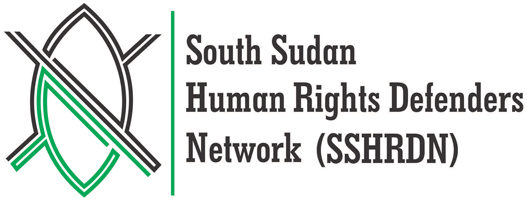Juba, November 29th 2023,
Amidst the ongoing 16 Days of Activism Against Gender-Based Violence, our focus shifts to the unsung champions driving the pursuit of peace and human rights in South Sudan – the Women Human Rights Defenders (WHRDs). These extraordinary women have been instrumental in the nation’s progress, contributing significantly to pivotal peace agreements like the Comprehensive Peace Agreement of 2005 and the subsequent Revitalized Agreement on the Resolution of the Conflict in the Republic of South Sudan (R-ARCSS).
WHRDs face heightened risks of gender-specific threats and violence, both in public and private spheres. These include verbal abuse, sexual harassment, rape, and other forms of gender-based violence. Tragically, such acts perpetuate additional marginalization and exclusion through social stigma, extending even to family members closely associated with WHRDs, making them specific targets as well
The Women Protection Officer Ms. Gisma Magara has said WHRDs are particularly susceptible to various forms of gender-specific threats and violence, both in public and private spheres. This includes gendered verbal abuse, sexual harassment, rape, and gender-based violence. “Regrettably, such acts can lead to additional marginalization and exclusion, perpetuated by social stigma. Even individuals closely connected to WHRDs, including family members, are not immune from being specifically targeted”. Gisma
Furthermore, WHRDs often find themselves at the center of attacks aimed at tarnishing their reputation and challenging their sexuality, stemming from non-conformity with stereotypes governing “appropriate” behavior for women and men. Conservative narratives that confine women to family and procreation roles contribute to this targeting, resulting in their isolation and estrangement from communities and families.
This Year, the WHRD report highlights the substantial obstacles faced by WHRDs in South Sudan, especially in the realm of law enforcement. Peaceful demonstrations are increasingly less tolerated, and many WHRDs live in fear due to repeated threats and harassment by state operatives.
The findings also reveal a lack of knowledge of legal frameworks, ineffective advocacy strategies, insufficient funding, poor organization, and restricted access to legal recourse. These challenges hinder WHRDs’ ability to effectively promote human rights and social justice in South Sudan.
Despite these challenges, South Sudanese WHRDs demonstrate remarkable resilience by forming self-sustainable unions, associations, and networks in different states. These community-based initiatives offer crucial support for WHRDs in the face of adversity.
This report (Against All Odds (1)) offers a comprehensive account of the situation of WHRDs in South Sudan, outlining their experiences, challenges, and needs. It also presents key recommendations to address the unique obstacles they face in their pursuit of human rights.
As we commemorate the 16 Days of Activism, let us acknowledge and support the brave Women Human Rights Defenders who, against all odds, continue to inspire positive change in South Sudan
download the report here (Against All Odds (1))
